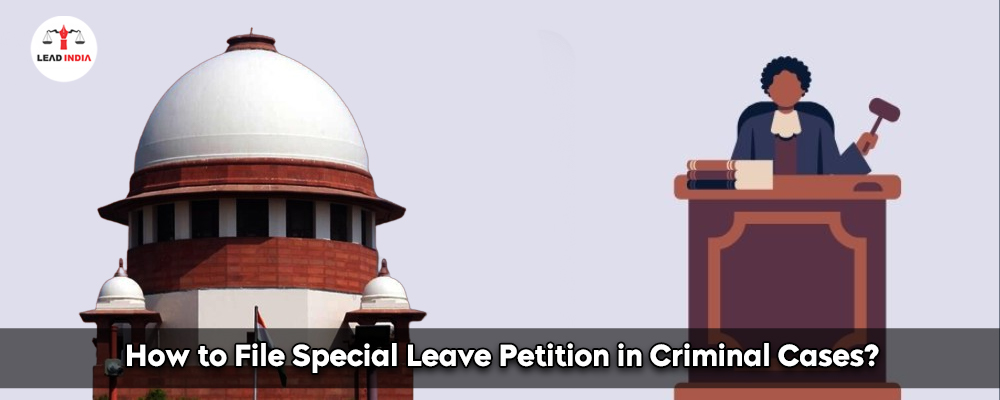The Supreme Court of India has the authority to grant special leave to appeal against any judgment, decision, or decree in any case or cause passed or made by any Court or Tribunal within the territory of India, as per Article 136 of the Indian Constitution.
The Supreme Court of India, the highest court in the nation, has the special power to allow an appeal against any ruling if there is a significant constitutional dispute or if severe injustice has been committed.
Need A Legal Advice
The internet is not a lawyer and neither are you. Talk to a real lawyer about your legal issue

When Can the Special Leave Petition in Criminal Cases be Filed?
- Special Leave Petitions may be filed in criminal cases when the accused’s rights are violated or when there are major legal concerns.
- For example, a Special Leave Petition may be brought to contest a High Court ruling in a criminal case if it raises important legal issues or involves a breach of fundamental rights.
Who Can File a Special Leave Petition in Criminal Cases in the Supreme Court?
Any individual who feels wronged by a judgment, decision, sentence, or order of a court or tribunal in India may submit a Special Leave Petition in Criminal Cases in accordance with Article 136 of the Indian Constitution.
- Parties who took part in the initial processes that gave rise to the judgment or order are among those who would be immediately impacted by it and can file a special leave petition under the virtue of Article 136 of Indian Constitution.
- Those parties to the lawsuit who have a direct legal interest can file an SLP. This category covers everybody, even those who were not directly involved in the initial procedures, whose legal rights or interests are immediately impacted by the judgment or order.
- People or groups acting in the public interest can file the Special Leave Petition in Criminal Cases who, even in the absence of a direct personal interest in the final result of the case, have a genuine interest in enforcing the law or stopping injustice.
How to File a Special Leave Petition in Criminal Cases in the Supreme Court?
With a few changes, the process for submitting the special leave petition in criminal cases is fairly identical to that used in civil cases. The basic details, such as the statute of limitations and the constitutional clauses that are adhered to, are still the same.
The Supreme Court Rules’ Order XXII outlines the process for submitting a special leave petition concerning criminal cases. According to the ruling, the guidelines in Rule 3(1) of Order XXI must also be adhered to when filing a Special Leave Petition in criminal cases.
- In order for the court to decide whether to grant the special leave, all relevant information must be concisely and clearly stated in the petition requesting special leave to file a criminal appeal.
- Unless the petitioner appears in person, the petition must be properly signed by the advocate representing the petitioner.
- The petition ought to specify whether the petitioner had approached the relevant High Court for permission to appeal against the decision and the High Court’s order concerning the matter.
- It should be explicitly stated in the petition whether or not the petitioner has filed an appeal for special leave to challenge the judgment or order in question.
- If a similar special leave petition had been filed sooner, the outcome should have been appropriately documented and backed up by an affidavit from or from any other individual the appellant has duly authorized.
- Only the pleadings previously filed before the court or tribunal whose decision is being contested and the additional documents listed in this case should be verified in the petition.
- No more information or documentation can be cited as supporting evidence without the court’s approval.
- An affidavit supporting the facts stated in the petition and a certified copy of the judgment or order that is being appealed against must be included with the petition.
If the appellant has received a sentence of imprisonment, it should be made clear in the petition whether or not the petitioner has surrendered themselves in order to face the consequences of their punishment. Unless the petitioner is granted an exemption from surrender, the court is unable to consider the case.
One can talk to lawyers from Lead India for any kind of legal support. In India, free legal advice online can be obtained at Lead India. Along with receiving free legal advice online, one can also ask questions to the experts online free through Lead India.





 Talk to a Lawyer
Talk to a Lawyer